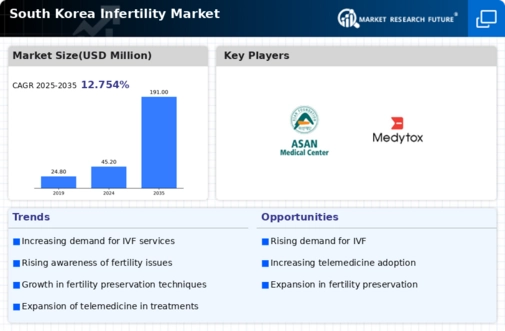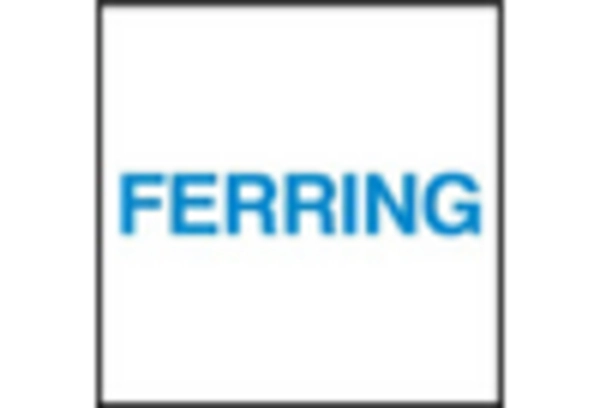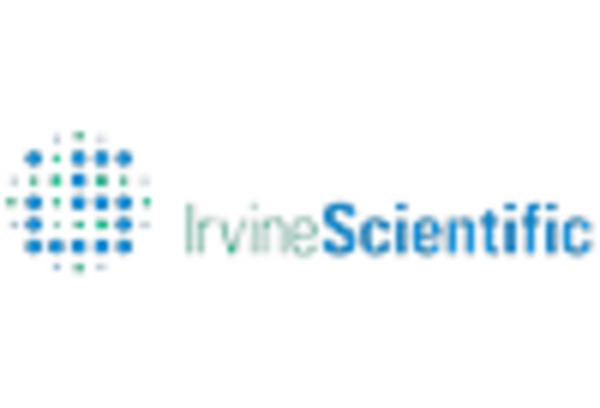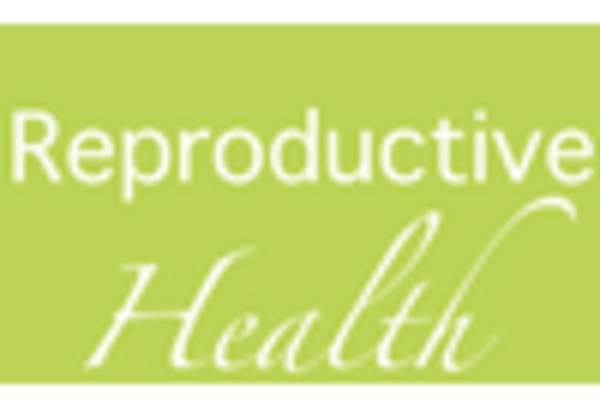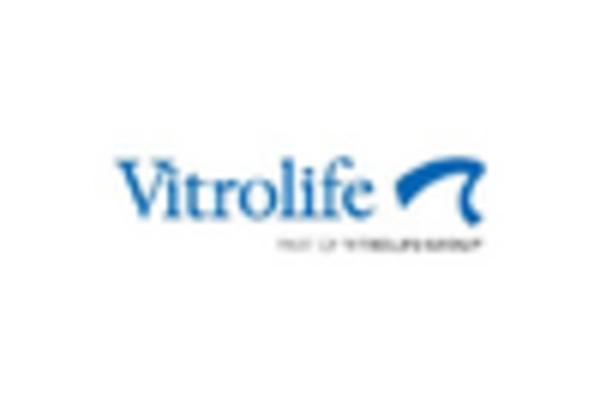Rising Infertility Rates
The infertility market in South Korea is experiencing growth due to increasing infertility rates among couples. Recent statistics indicate that approximately 15% of couples in South Korea face infertility issues, a figure that has been steadily rising. Factors contributing to this trend include delayed marriages, lifestyle changes, and environmental influences. As more couples seek assistance, the demand for infertility treatments and services is likely to increase. This trend suggests a robust market potential for clinics and healthcare providers specializing in reproductive health. The rising infertility rates are prompting a greater focus on innovative treatment options, thereby driving the overall growth of the infertility market.
Government Policies and Funding
Government initiatives aimed at addressing infertility issues are playing a pivotal role in shaping the infertility market in South Korea. Policies that provide financial support for fertility treatments, such as subsidies and insurance coverage, are encouraging more couples to pursue assistance. Recent reports indicate that government funding for infertility treatments has increased, making these services more accessible. This support not only alleviates the financial burden on couples but also promotes a culture of seeking help for infertility. The proactive stance of the government is likely to stimulate growth in the infertility market by increasing the number of individuals seeking treatment.
Increased Awareness and Education
There is a growing awareness regarding infertility issues in South Korea, which is significantly impacting the infertility market. Educational campaigns and media coverage have played a crucial role in informing the public about reproductive health and available treatment options. As awareness increases, more individuals and couples are likely to seek medical advice and treatment for infertility. This shift in perception is expected to lead to a higher demand for fertility services, including in vitro fertilization (IVF) and other assisted reproductive technologies. The increased focus on education and awareness is likely to enhance the overall growth trajectory of the infertility market.
Cultural Shifts and Family Planning
Cultural attitudes towards family planning and childbearing are evolving in South Korea, influencing the infertility market. Traditionally, there has been a strong emphasis on early marriage and childbearing; however, contemporary societal norms are shifting towards later family planning. This change is leading to a rise in infertility cases as couples delay starting families. As societal acceptance of infertility treatments grows, more individuals are likely to seek assistance. This cultural shift is expected to drive demand for fertility services, thereby contributing to the expansion of the infertility market in the coming years.
Advancements in Reproductive Technologies
Technological innovations in reproductive health are transforming the infertility market in South Korea. The introduction of advanced techniques such as preimplantation genetic testing (PGT) and cryopreservation has improved success rates for fertility treatments. These advancements not only enhance the effectiveness of treatments but also provide patients with more options tailored to their specific needs. As technology continues to evolve, it is anticipated that the market will see an influx of new services and products aimed at improving fertility outcomes. The ongoing research and development in reproductive technologies are likely to be a key driver of growth in the infertility market.


